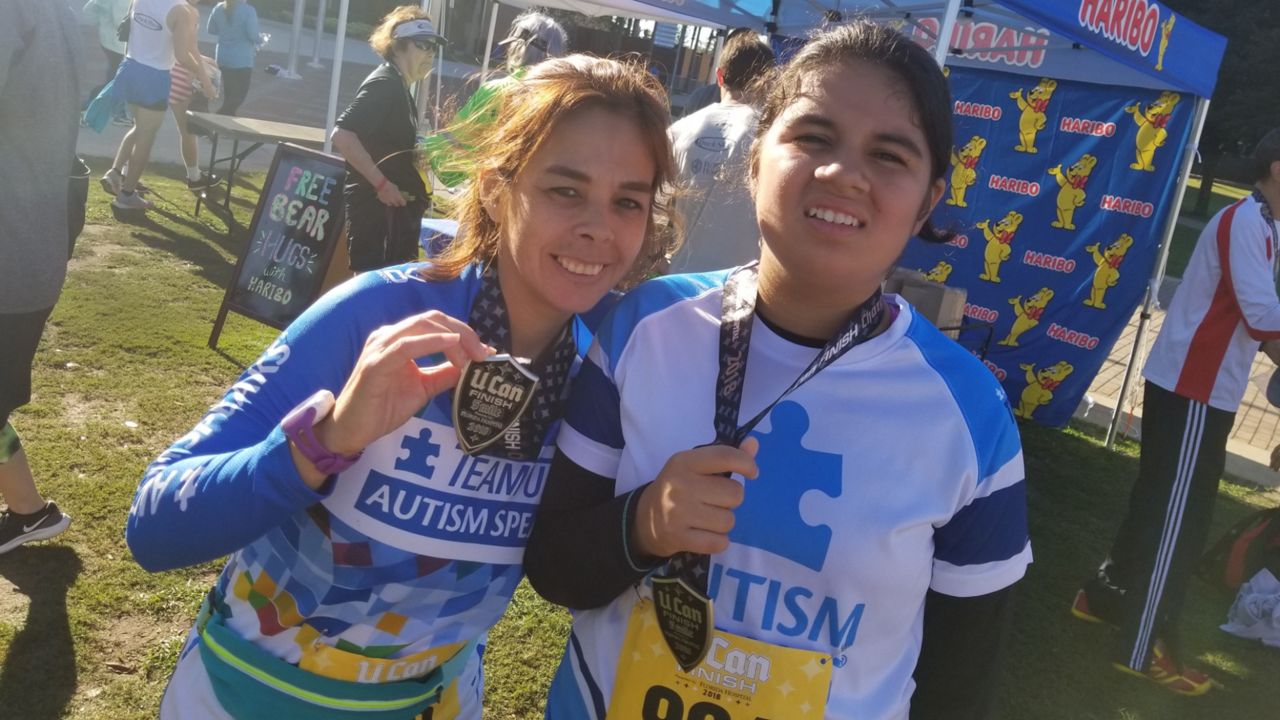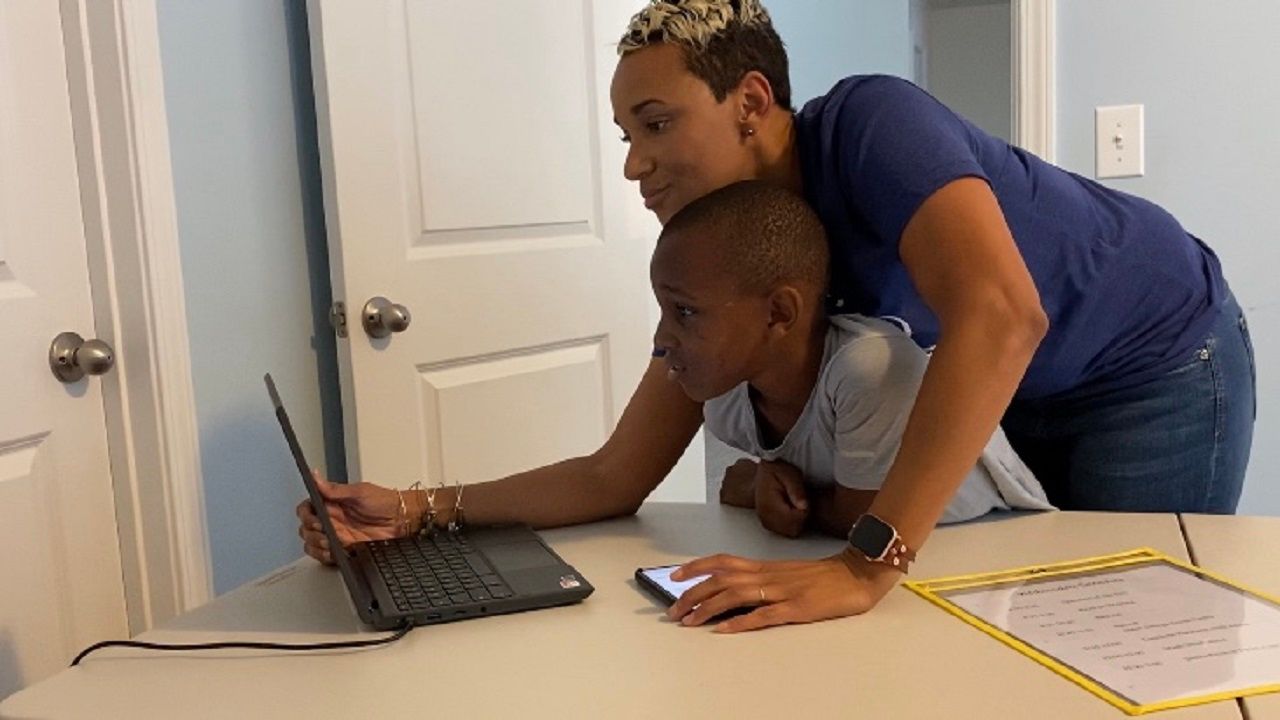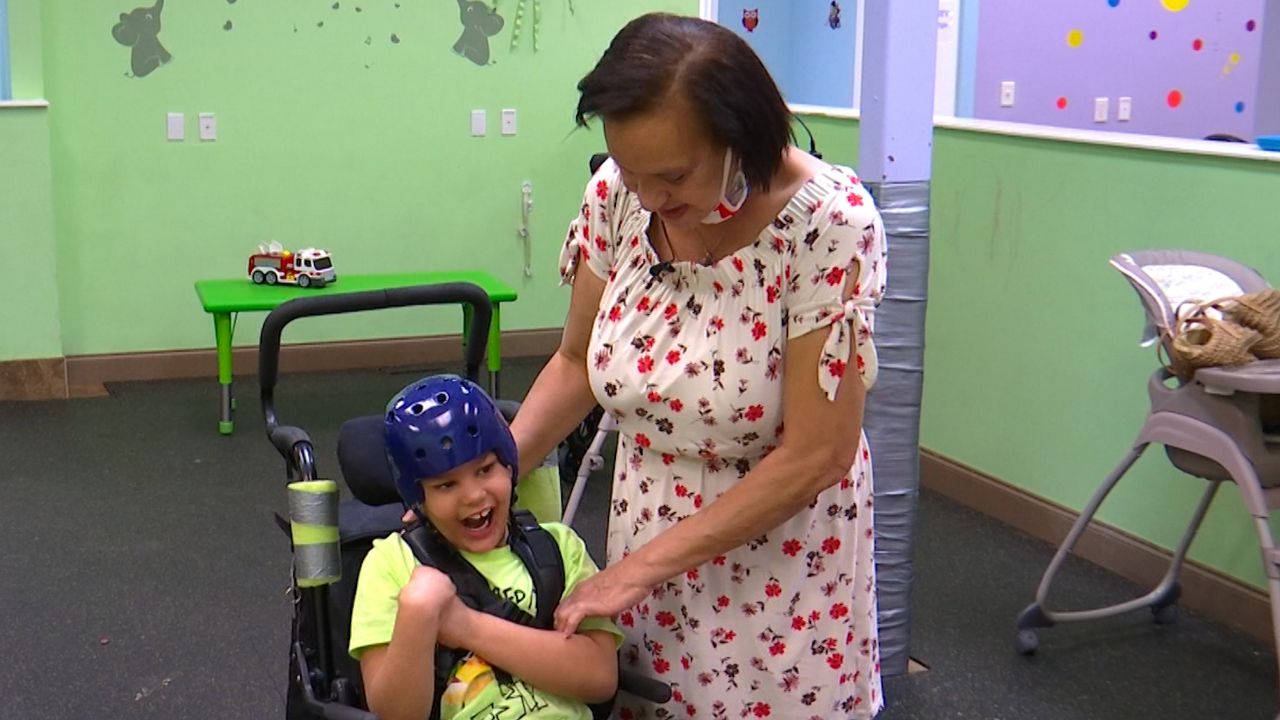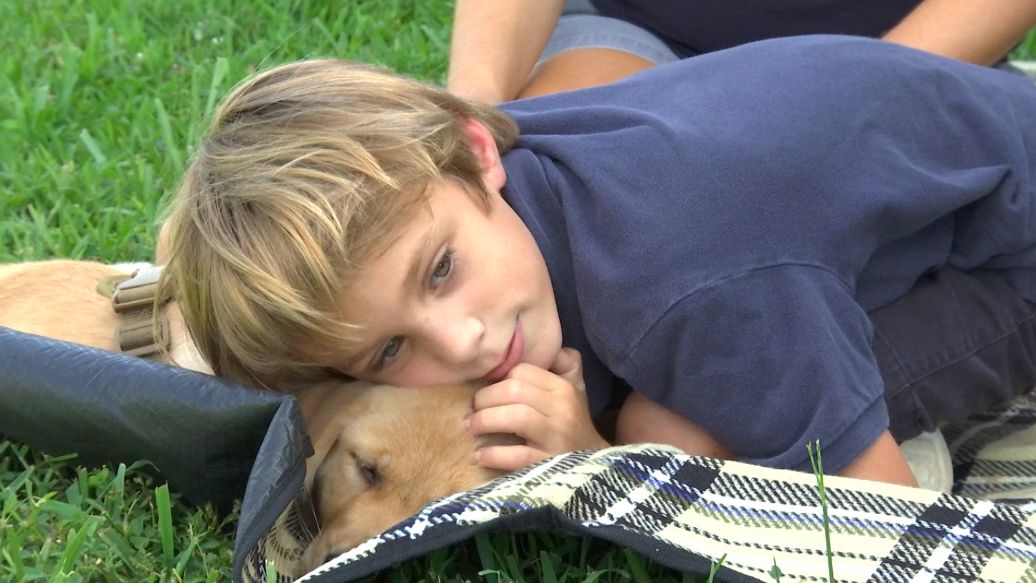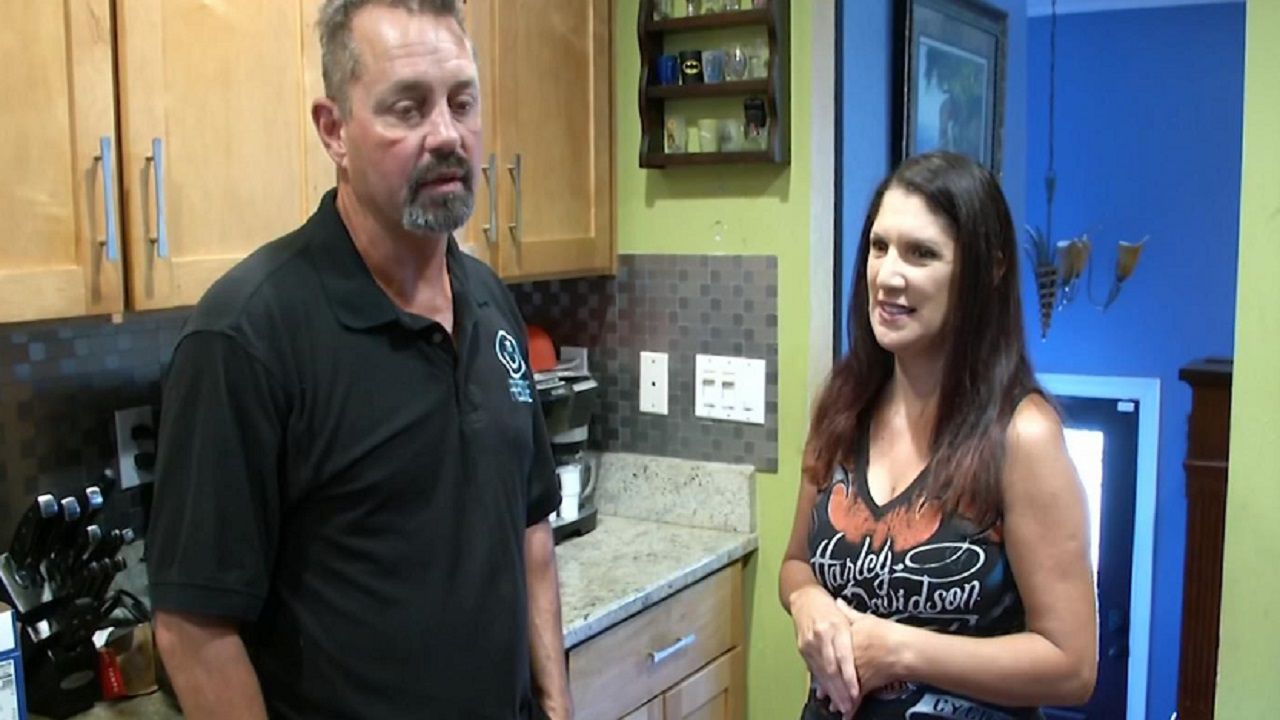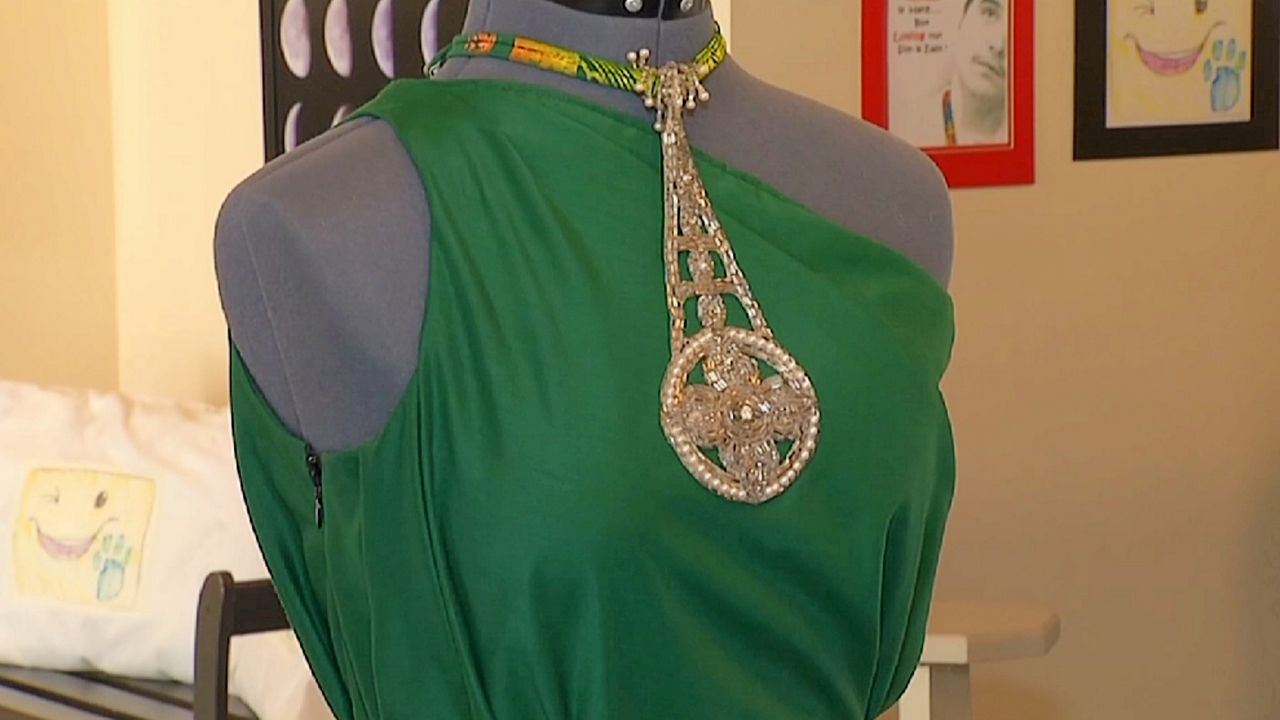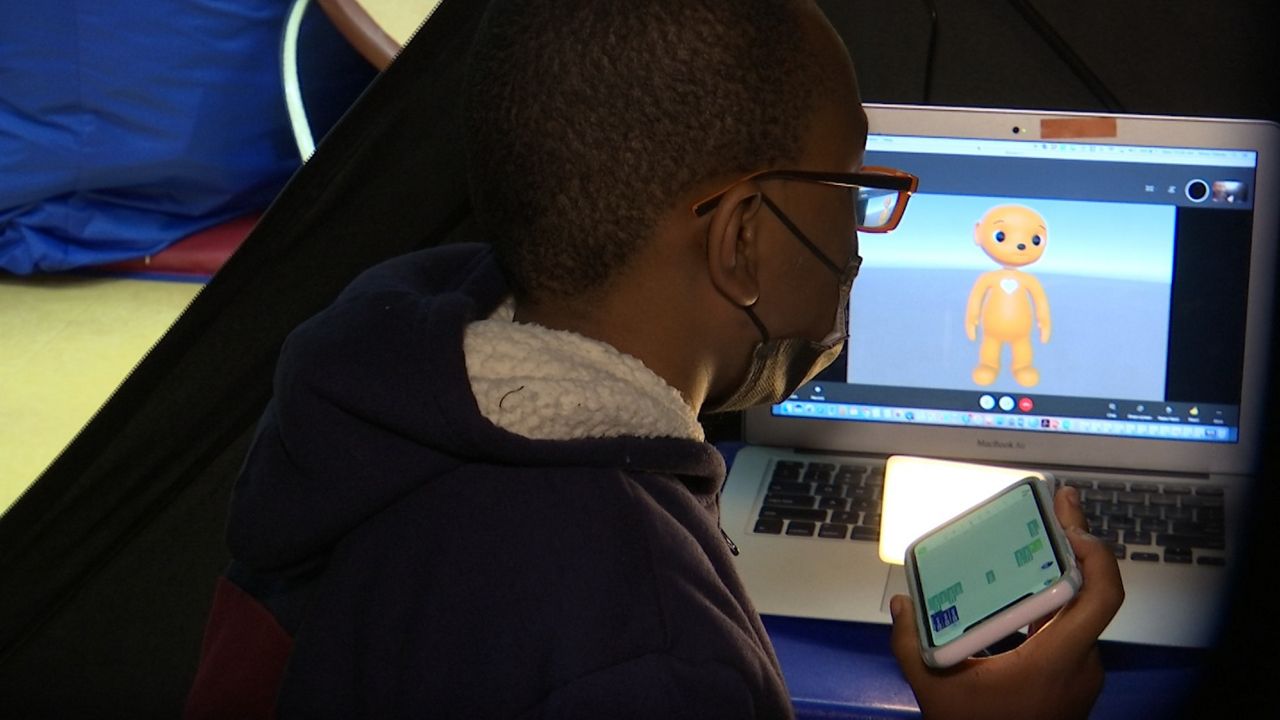Stacy Carmichael says she always finds herself amazed by the resilience of human beings.
What You Need To Know
- Psychologist: Pandemic has served autistic population “quite negatively”
- Families: Pandemic disrupted routine and services for their children
- College student: “Ironically, I actually have more services and help now”
- RESOURCES:
The clinical psychologist says that in the context of the coronavirus pandemic and autistic children, especially those in crisis.
Parents and health professionals say the pandemic has disrupted the comfort of routine for people with autism, perhaps especially for school-age children. It also has changed or delayed access to essential therapy and other services.
Also, Carmichael said, the lack of social interaction has sent some extraverted children with autism into depression.
“Just as for everyone, the pandemic has served the autistic population quite negatively,” Carmichael, a certified autism specialist for Orange County-based MindWorks Psychological Services, wrote to Spectrum News in an email. “This is a population often requiring specialized therapies ... or individual therapy, all of which were halted at the beginning of the pandemic, with not all agencies returning to in-person operations.”
The effects of the pandemic have added stress to the parents of children with autism. That perhaps especially goes for working single parents who also care for their own parents, like Karina Rodriguez of Altamonte Springs.
“Sometimes it’s like overwhelming,” she told Spectrum News.
Autism affects 1 in 54 children and is four times more common in boys than girls, according to the Centers for Disease Control and Prevention.
It’s a bio-neurological developmental condition that affects social interaction, communication skills, and cognitive function, the National Autism Association says. People with autism typically struggle in communication, in social interactions, and in play and leisure, the organization says.
Parents of autistic children told Spectrum News this week that their children are doing better now than at the beginning of the pandemic, especially since they’ve returned to in-person classrooms.
One college student with autism said the pandemic actually has helped him.
“Ironically, I actually have more services and help now,” said Ryan Colom-Cancel, 19, a student a Lake-Sumter State College. “I’ve actually been doing more socialization.”
That illustrates what the National Autism Association says, that autism “greatly varies from person to person” and that “no two people with autism are alike.”
Some parents feel strongly about a need to eliminate society’s labels on their children.
“They’re not disabled,” Jessica Parisoe of Leesburg told Spectrum News. “They’re differently abled. And I think a lot of times they get treated with gloves that they do not deserve.”
She then referred to her son, Joey, who she said turns 12 in April but has the cognitive capacity of a 2- to 4-year old.
“I feel like a lot of times he is unjustly critiqued, criticized, and almost condemned” because he doesn’t have the capacity of a 12-year-old, she said. “They see him more as a liability or a consequence, I guess, instead of an equal.”
Here’s a look at how one child, one high school student and one college student with autism have coped during the pandemic, as explained by the parents and, in one case, a person with autism.
Note: Some people in autistic communities refer to themselves or their children in identity-first language, such as “autistic person.” Others prefer person-first language, such as “person with autism.” Some, as we have, use the terms interchangeably.
Samantha, 17, Altamonte Springs
Samantha “Sammy” Rodriguez would always look forward to Monday night. That’s when she’d participate in a group for autistic teenagers. They’d talk about, for example, what they’d been doing lately, what good restaurants they’d been to, and when they could all get together for dinner.
Then came March and the arrival of the pandemic.
“When the pandemic began, she couldn’t understand why she couldn’t go and meet her friends,” said Samantha’s mother, Karina. “She had a hard time, and it was really challenging for her to understand.”
The pandemic initially meant fewer visits from a behavioral therapist, who would emphasize topics such as self-care, independence, and Samantha’s life ahead as an adult. Perhaps most significantly for Samantha and her family, it also meant that she — like all other students — would have to learn online from home.
Karina Rodriguez works full-time as a caregiver at a Winter Park assisted-living facility. In addition to raising two children as a single mom, she also looks after her elderly parents.
When the pandemic began, Karina’s parents took on the daily responsibility of seeing Samantha through her schoolwork and beyond.
“When she’d have tantrums, cry or become anxious, they didn’t know how to help her,” Karina said. “It was really hard.”
In August, Samantha embarked on another change in routine. She returned to her Winter Springs school, entering 11th grade.
But she immediately encountered a sensory problem common among other people with autism.
“She doesn’t like anything to go on her face,” her mother said. “We had a hard time with the face mask, so we had to teach her the steps, how to wear the mask.”
Samantha has adjusted to the mask and to her new schedule. She remains in school, and she receives increased visits from her behavioral therapist.
She also connects online with friends through the Autism Society of Greater Orlando, an organization largely of volunteer parents that says it understands “what it is like to live with autism on a daily basis.”
Samantha’s certainly making strides. She began running with her mother, a distance runner, about three years ago, and on Saturday they competed together in their first race since the beginning of the pandemic.
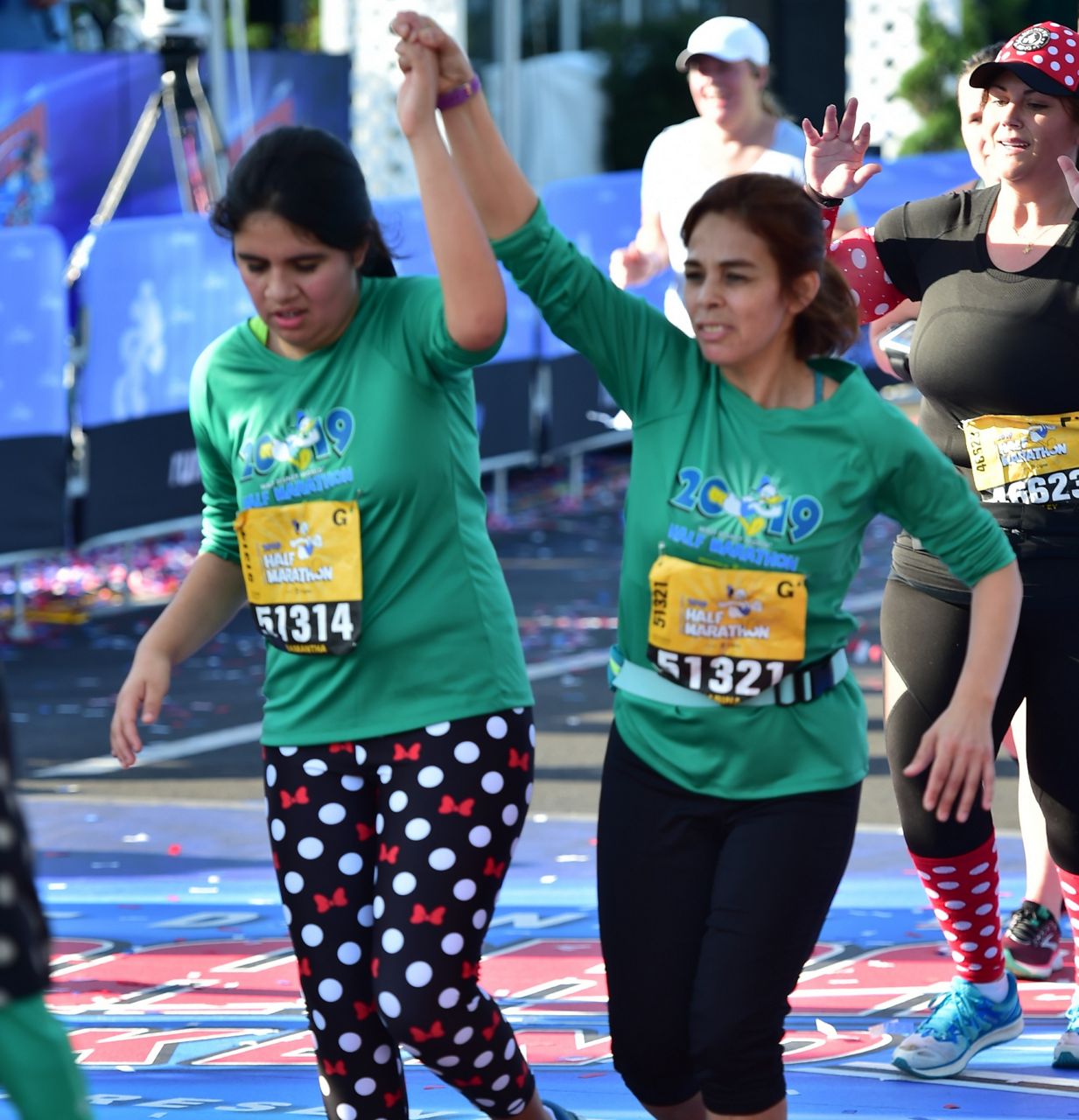
Samantha also competes in Special Olympics, which makes her feel included and better about herself.
“It has opened so many doors for her,” her mother said. “And it opened doors for me, too, because I was able to meet many families that were going through the same thing.”
For Saturday’s race, event officials required participants to wear masks at the beginning of the race and when crossing the finish line. Karina emphasized this to her daughter, who followed through as instructed.
“I was so proud of her,” Karina said.
Ryan, 19, of Groveland
It’s not that Ryan Colom-Cancel enjoys isolation. It’s just that he’s selective about where and with whom he visits.
You likely won’t find him in a bar with three dozen people watching the Super Bowl and screaming. You’re far more likely to find him in a room with five people talking about chess and how to checkmate in four moves.
“I don’t like being out in large crowds — hustle-and-bustle sort of places,” he said.
The pandemic has removed him from those, prompting a broad transfer of needs and services to online access. He now also typically does therapy sessions online.
He perhaps especially appreciates the University of Central Florida Center for Autism and Related Disabilities, or CARD. The program says it provides direct assistance, public education, family support, parent training, and technical assistance and consultation to Orlando-area children and adults who have been diagnosed with autism spectrum disorders.
“I really couldn’t access a lot of the help that was over in Orlando until now,” Ryan said. “I live in the middle of nowhere.”
He prefers the quieter life of Lake County, and that’s why he attends Lake-Sumter State College. He appreciates Florida’s state-college system, which allows an associate degree to easily transfer to a university.
“It’s more peaceful here,” he said.
As for Orlando, “I think it overwhelmed me.”
He credits desensitization therapy — “slowly going out there more and talking to people” — for social gains he’s making. In an online class, he’s talking with classmates and helping to coordinate a project.
The isolation of the pandemic — and society’s reliance on virtual connections — has helped him work his way into such social encounters.
“The pandemic has even helped me find employment,” he said.
He’s selling cutlery through via phone for a New York-based marketing company. It’s his first job, and it’s going well.
“I like my job,” he said. “I’m pretty good because my memory is one of my better assets. I’m not that charismatic, but I can remember all the data and stuff very easily.”
Asked about misconceptions, Ryan says others tend to see people with autism as loud, aggressive and unable to manage themselves.
“Many people who I know, they’re not aggressive, they’re not loud. They can manage themselves,” he said. “They can be polite. The only thing is they’re just a bit shy. They don’t like to be out in crowds. Sometimes maybe bright lights, loud sounds, might aggravate them.
“But with certain accommodations, they can do office work really, really well. They can do repetitive tasks better than many other people.”
Joey, 11, of Leesburg
Joseph “Joey” Parisoe likes to hug. He says, “I love you, Daddy,” and when appropriate, he says, “I’m sorry.”
In those ways, he differs from a cousin with autism who’s quiet and doesn’t often express emotions.
Joey’s dad, Josh, thereby points to the autism spectrum.
“It literally is a spectrum of different things,” he says, “and each one of those things will peak and valley based on that person’s autism.”
After the pandemic hit, Joey missed out on weekly therapy sessions for fine motor skills, which involve smaller muscles in the hands and aim to help Joey get a stronger grip of his pencil.
He also struggled through a “horrible” transition from school learning to home learning, his mother said.
“He’s very dependent on a schedule and what he’s used to for school,” Jessica Parisoe said, “so getting him to concentrate and sit down for lots of time at home was almost undoable.”
His parents rearranged a room and removed all potential distractions so that Joey might focus on his studies.
After the new school year started in August, Joey’s parents kept him at home for a few weeks, and he did well at first. Then he shut down and wouldn’t complete any assignments, requiring constant direction from his already-busy parents.
The Parisoe household boasts six children, including one in middle school, two in high school, and two in college.
“All of our kids stayed home, so they’d have their courses and you’d give them their classes,” Joey’s father said. “But when you tell an autistic child to stay home, you’ve now given the parent a full-time job.”
Joey got to a point where he would fall asleep at his desk, “and I was like, ‘We have to go back to school,’ ” Jessica said.
A few weeks into the new school year, Joey returned to his fifth-grade classroom in Mount Dora. That introduced new problems.
His sensory sensitivities make it difficult for him to wear a mask. “He feels everything magnified more than we would,” his mother said.
Joey also needs constant reminders about touching things, washing his hands and keeping his mask on, which become difficult for teachers who oversee multiple students.
But “his grades have improved immensely since going back to school,” Jessica Parisoe said.
She reflected on the past year.
“If I had to summarize everything, I’d have to say the pandemic educationally has thrown us through a tailspin,” she said.
She pointed to her son’s transition from school to home, his extended stay at home, then his return to school.
“That’s not only tough for an autistic kid,” she said. “That’s tough for anybody.”




